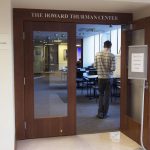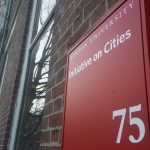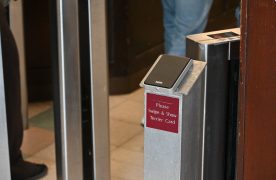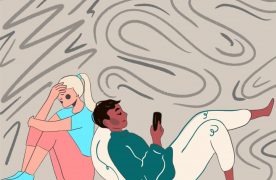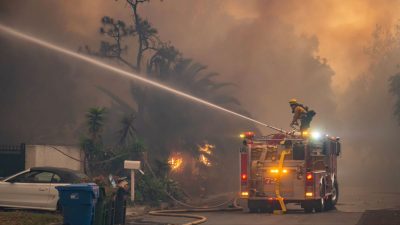
Fourteen active wildfires are blazing through California, claiming lives, destroying property and affecting Boston University students who call California home.
The ongoing major fires in both Northern and Southern California are forcing the evacuation of hundreds of thousands of people. The Northern California Camp Fire, which is believed to be the most destructive fire in the state’s history, burned over 130,000 acres as of press time, according to the California Department of Forestry and Fire Protection.
Hundreds of people are still missing in places where the fires have been burning, and the death toll is rising daily.
Dean of Students Kenneth Elmore wrote an email Wednesday to students from California expressing hope for the resiliency of affected communities and his wish that students’ loved ones are all right.
“You may feel, as I do, a bit anxious about the effects of the fires,” Elmore wrote. “I sincerely hope that amidst the stress of this disaster, you are able to continue to move forward – to get your work done and stay balanced in your personal life.”
Elmore also encouraged students affected by the wildfires to stop by the Dean of Students Office if they are in need of further support.
BU spokesperson Colin Riley said the university typically reaches out to students affected by natural disasters.
“I think it’s very important that students know that the university cares very much about them,” Riley said, “not just because they’re students here, but because we know their families are in harm’s way.”
Riley said he hopes the families, friends and relatives of BU students are safe. The university will communicate with affected students, he said, and help them with any particular issues with which they need assistance.
The Howard Thurman Center for Common Ground, which is geared toward facilitating discussion about contemporary local, national and international issues, is one place where affected students may find comfort to deal with the fires’ effects, said HTC office assistant Helena Gill.
Gill, a College of Engineering student, said the Howard Thurman Center is a place for all and is naturally equipped for having conversations in a comforting environment.
“I guess this would be a good place for people to just come and come together with others,” Gill said, “because there’s a couple of programs here that talk specifically about how to move forward.”
Sydney Clark is a College of General Studies sophomore from Thousand Oaks, California, which is close to the Woolsey Fire and was also the site of a mass shooting Nov. 7. She said California is known for its wildfires, which wreak havoc yearly.
“I think it’s always something that’s on our minds constantly about wildfire prevention, just like how we’re very mindful about our water usage in California more than other states are,” Clark said.
Though Clark’s neighborhood is safe, she said, her family was subject to the mandatory evacuation.
Clark said she thinks the fires bring the California community together and makes them appreciate what they have.
“It’s hard to watch where you live be in ashes,” Clark said. “It really changes, I think, our perspective. It brings people closer together.”
Cheyenne Tipton, a College of Arts and Sciences junior from West Hills, California, said the fires have been stressful for her family, as an evacuation order took place close to her house.
“Personally, it’s just really stressed me out because I’m here and I can’t do anything about it,” Tipton said. “And my family is all there, so I’ve had to have people that were evacuated stay at my house.”
Tipton said the ongoing fires were the closest to her home in recent memory.
“It’s been stressful with that,” Tipton said, “having to have my parents pack me a bag of things that I want from my house in case the fire came.
Sarah Stipanowich, a College of Communication senior from Malibu, California, said dry conditions coupled with Santa Ana winds — downslope gales that exacerbate fires — make Southern California “ripe for fire” during the late fall and early winter. Under the right conditions, she said, something as simple as hot cigarette ash or a campfire can lead to almost unstoppable wildfires.
“It was harrowing to watch from afar,” Stipanowich said in regard to the fires that destroyed much of Malibu and surrounding parts of California.
Stipanowich said she and some friends from Thousand Oaks are grieving at the effects of the fire.
“I think as an institution, BU should really reach out, bring awareness to what’s going on,” Stipanowich said, “… especially with what’s going on in California, it feels like we’re so far removed from the issue, from what’s going on, that it’s almost not humanized. People aren’t thinking of those affected.”



